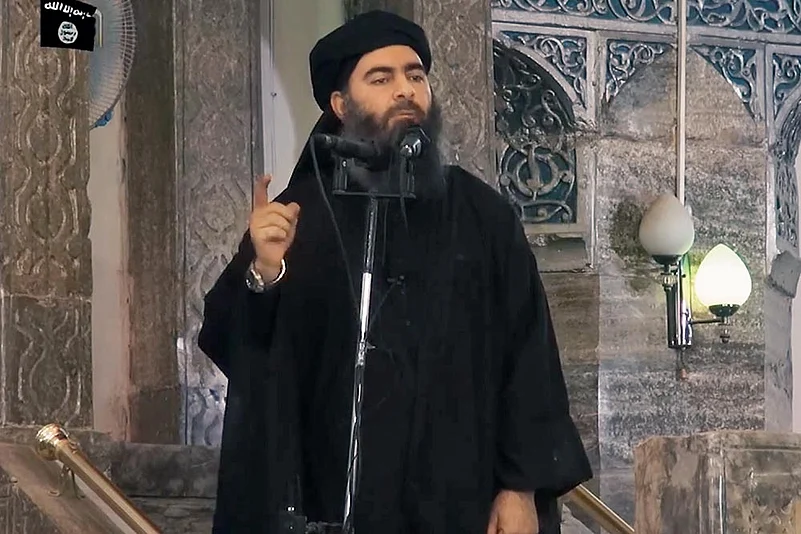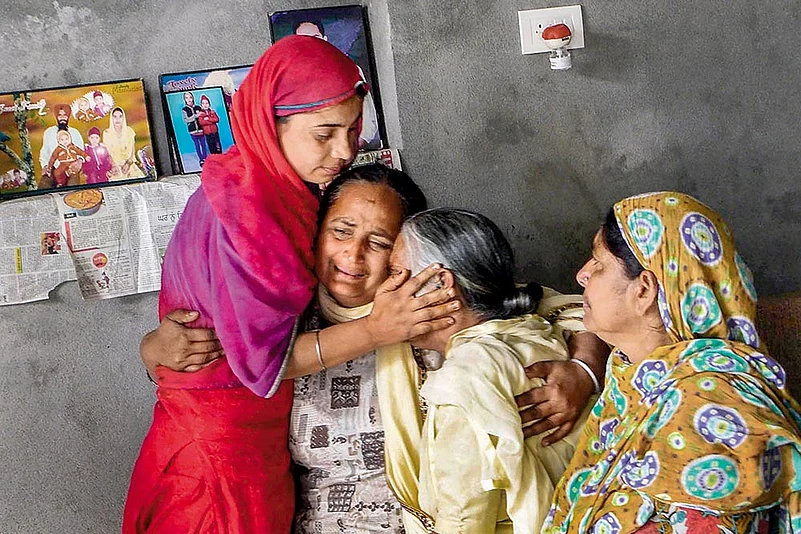On March 20, Minister of External Affairs Sushma Swaraj informed a stunned Rajya Sabha that the 39 Indian workers who had been in the custody of the Islamic State of Iraq and Syria (ISIS) since June 2014 were dead. This announcement has ended four years of hope in the hearts of family members that their loved ones still lived, a hope that had survived in spite of persistent reports of ISIS’s intolerance and brutality and its dreadful record of killing those in its custody.
ISIS was the product of the US-led war on Iraq in 2003 and the subsequent occupation of that country, during which state structures and institutions were systematically dismantled and the virus of sectarianism was injected deliberately into the broken political and social order.
Wellsprings Of ISIS
The US occupation of Iraq meant not just the robust ‘empowerment’ of the Shia as part of its deliberate divide-and-rule policies—it also meant the dismissal, incarceration, torture, unemployment and humiliation of Sunnis in senior ministerial, civil service, armed forces and security positions, besides attacks on them and their family members by the newly set-up Shia militia, often backed by Iran.

However, despite the violence, the sense of Iraqi national identity did not die: in 2007-09, the Sunnis in the Sahwa (‘awakening’) movement rose against the jehadi forces and decimated the Islamic State of Iraq (ISI) that had emerged in 2007 when its leaders had detached themselves from Al Qaeda. The Sunnis were given assurances that large sections of their fighters would be absorbed into the rejuvenated national army, while the remainder would be re-employed in government institutions.
Baghdadi At The Helm
None of these promises was kept: prime minister Nouri al-Maliki, afraid of a military coup, refused to set up a professional army and continued to rely on Iran-backed Shia militia, even as Sunnis continued to be excluded from employment.
An obscure theology student, Abu Bakr al-Baghdadi, who had spent some time in US custody in 2004-06, emerged in 2010 to revitalise the ISI and capture territory in the Sunni-dominated Anbar province. Hundreds of desperate Sunnis responded to his clarion call; from these inauspicious origins, a new and powerful transnational militant movement was born that would go on to rename itself ISIS after having captured territory in Syria in 2013.
ISIS shares with Zarqawi and his successors both doctrinal affinity and a commitment to violence, even brutality. This is directed not just at Shias but also at those Sunnis who are viewed as moderate, and even at jehadis who do not extend full obedience to Baghdadi. The brutal killings of Shia soldiers and other hostages, as well as lethal suicide bombings that were widely publicised through social media, earned ISIS a reputation for viciousness and intolerance that far exceeded that of its predecessors.
The alliance system that Baghdadi initially knitted together had important implications for the fate of the two sets of Indian hostages who would fall into ISIS custody—the 46 nurses in Tikrit and the 40 workers in Mosul.
The Naqshbandi Army
A key role in the professionalisation of Baghdadi’s forces was played by officers and other personnel from Saddam Hussein’s army and police, so much so that in the early years at least 30 per cent of ISIS’s senior commanders came from Iraq’s disbanded forces. They were professionals—and most of them were ‘secular’ Baathists who did not share the jehadi zeal of their leader.
An important but still enigmatic figure among Baghdadi’s associates in this early period is General Izzat Ibrahim al-Douri, Saddam’s vice-president, head of the Revolutionary Command Council, interior minister and perhaps Saddam’s only confidant. He headed the Baath party after Saddam’s execution in December 2006. He was also the only Saddam ally not to have been apprehended by the US forces. In the 1990s, he backed Saddam’s “Faith Campaign” and built close links with Salafi groups that Saddam encouraged.
Douri was the acknowledged head of the Naqshbandi Sufi movement in Iraq. During the occupation, he set up the Naqshbandi Army, consisting of his Sufi adherents and former Baathists, which later backed Baghdadi’s forces and played a key role in the capture of Tikrit and Mosul in June 2014; these were places where he had close links with Sunni and Salafi networks. Douri was the most popular figure in Tikrit: when this town fell to ISIS, the people celebrated with posters of him as well as Saddam.

While the full facts relating to the release of the Indian nurses in early July 2014 and their safe transport from Tikrit to Arbil, the capital of the Kurdish regional government, are not yet known, it can be surmised that at that time the Saddam-era former officers had considerable influence in the town and on ISIS. Not only were they ‘secular’ and professional, they would also have had an extraordinary goodwill and affection for India and Indians, which had been particularly strong during the Saddam regime.
But, the fall of Mosul marks an important change in ISIS: within a few weeks the collaboration between the former Baathists and the hardcore jehadis ended. A large number of former military officers were arrested, highlighting what Fawaz Gerges calls the “unbridgeable doctrinal divide” between the Naqshbandi Army and the zealots who now came to dominate the ISIS leadership. ISIS now referred to Douri as a “scheming infidel”, while the latter strongly criticised ISIS for its mass murders and the persecution of minorities.
ISIS Zealotry
From this distance, we can speculate that this change in the ISIS leadership and approach perhaps signed the death warrant of the 39 Indians arrested by ISIS in Mosul; as non-Muslims, they would have been the first victims of this fanatical scourge and might have been killed soon after their arrest.
The saga of ISIS over the last three years is well-recorded: it is a litany of rampant violence and abuse till the ‘caliphate’ ended following the rejuvenation of the Iraqi army, the latter’s long-drawn military campaign, its final assault on Mosul in July last year and the capture of Hawija, the last town that remained under ISIS control, in October.
While the announcement of the deaths of Indian nationals is painful for both the government and the bereaved, it was right that the minister held out hope till firm evidence of their murder was obtained. On the other hand, there will still be questions about whether they could have been saved, given that the nurses moved to safety and returned home at a time and from a place that still had elements that cared for India and the lives of those vulnerable women.
Fourteen years ago, in 2004, we were able to bring back our hostages from Iraq because, while the kidnappers did have a limited political agenda, they had a much larger financial incentive to negotiate: they provided an interlocutor who sat with the Indian team in Baghdad every day for nearly a month to work on the details of the political and financial aspects of the deal, the actual handover of the ransom by the Kuwaiti employees of the kidnapped drivers, and the return of the hostages to us.
Though later ISIS is reported to have accepted ransom payments for western hostages, no such option was provided to us in Mosul: intoxicated with the fresh conquest and the declaration of the ‘caliphate’, ISIS did not even hint at the possibility of a negotiation. It rapidly killed the humble, innocent persons caught in the middle of wars inflicted on the country by powerful regional and global forces that in turn have ignited ancient doctrines and practices and bestial conduct rarely witnessed in the modern era.
(The writer, a former diplomat, led the team that negotiated the safe return of the Indian hostages from Iraq in 2004.)
























